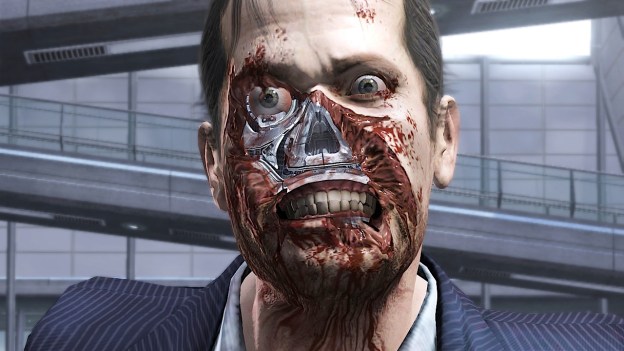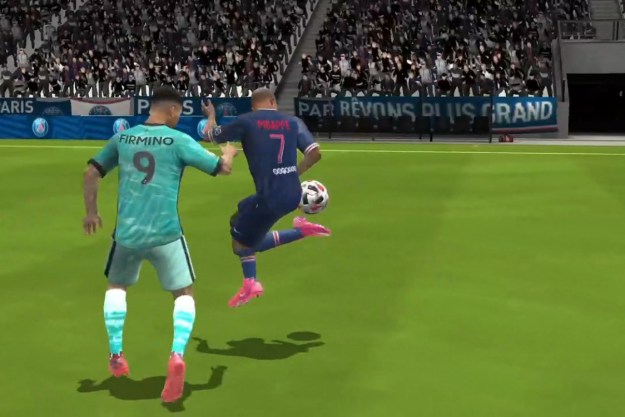Yakuza Studio’s Binary Domain taps into the increasingly common robot-ruled dystopian narrative we’ve been seeing more and more of in recent years as cyberpunk fiction has come back into vogue. The February 2012 game from Sega is set in a future Earth that has been torn apart by a robot uprising. Many of them look and act human, but all are possessed with enough self-awareness to realize that they are inherently better than their human creators.
It went down like this: The world fell apart at some point long before the game opens, prompting giant corporations to step in and build an army of automatons to repair Earth’s cities. Those among them that looked human were simply integrated into society, with no knowledge of their true identity as robots. Something happens that opens the eyes of these embedded ‘bots, and chaos ensues in the form of a machine uprising. Now it’s up to you to… I’m actually not sure how or why, but “saving the world” seems to be a part of it.

That’s the basic setup for Binary Domain. The actual game is a squad-based third-person shooter with emphasis on your team. Sega stopped into New York with the game last week to show off its “Consequence System,” which is built entirely around fluctuating squad dynamics. You’re always accompanied by NPC fighters in this game — there are six potential team members in all, but you’ll only be with them in pairs — and, unlike many other NPC squadmates from other games, you’ll need give these people a reason to fight at your side.
In essence, the Consequence System keeps track of how effectively you work as part of a team, raising and lowering the level of trust your companions place in you. This works in a couple of different ways. In combat situations, your team’s trust level is influenced by what kind of leader you are. If you frequently send your people into no-win situations, they’ll quickly come to expect that sort of treatment. The same is true if you’re diligent about reviving downed squad members and backing up advances with appropriate amounts of covering fire.
Each of your potential teammates also has a unique personality. The Sega demo showed us Faye, a badass, no-nonsense sniper chick, and Cain, a ninja robot with a thick French accent. As you play and move between fights, you’ll strike up conversations with your companions. What you say and how you respond in these situations further influences how much trust your people do or don’t place in your abilities.
In practical terms, a low trust teammate will simply not comply with your orders and may in fact just go easy on the fighting all together. A high trust teammate, on the other hand, will more ready accept an order even if it’s something questionable, like asking the person to rush a heavily fortified enemy position. The combat banter reflects this, though the comments they make seem to be drawn from a fairly limited pool. This could get old very quickly, hearing those same comments uttered over and over again once the full game is unfolding before you.
Binary Domain has a number of other cool elements going on as well. Enemies take location-based damage, meaning you can shoot out an attacking robot’s legs and watch as it then tries to crawl toward you. The weapons all appear to be cut from a pretty standard cloth — though a limited-use turret-sized machine gun dropped by a downed enemy certainly looked plenty cool — but you’ll be able to upgrade the core firearms individually with things like large clips and boosted range. In an added twist, any visit to the story also gives you a free spin on a built-in slot machine, which promises further rewards if you strike it lucky.

Look for Binary Domain in stores on February 14, 2012.



